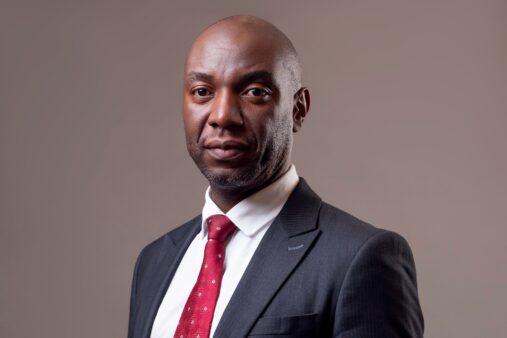In response to a recent question from one of the law students at Bibi Rukwenje’s Boundless Minds conversation, I realised I had not fully addressed why I find the advice “do what you love” problematic. In this piece, I elaborate on why this approach is not always the best guide for making career decisions.
The ambiguity of “Love”
The first issue with “do what you love” is the word love itself. It is the perfect example of why words are an imperfect vehicle of conveying meaning. It is a complex and multifaceted word which has also lost its essence from misuse and overuse. In classical philosophy, love is defined by example; agape (selfless love), eros (romantic love), philia (friendship), storge (familial love), etc.
When we say, “do what you love,” do we mean pursuing something you are good at? Something that feels meaningful or fulfilling? Or do we mean something that sparks a temporary emotional reaction?
Moreover, love can be fleeting. You may feel passionate about something at one point, but over time, that feeling can fade. Think of the songs you used to be crazily in love with. You may not be as crazily in love with them anymore. Your perception of the songs has changed and so have you. Heraclitus captured this phenomenon perfectly: “no man can step in the same river twice, for it is not the same river and he is not the same man.”
Many people start a job excited about the prospect, only to find that passion wanes as they get deeper into the work. So, the notion of “doing what you love” can set unrealistic expectations, implying wrongly, that passion will always be present, even during difficult or routine tasks.
Pleasure vs. Happiness: short-term vs. long-term fulfilment
Another key problem with DWYL is its potential confusion between pleasure and happiness. Most people would agree that the purpose of life is to pursue long-term happiness, not short-term pleasure. When we are tickled or massaged, we feel a pleasant physical sensation. That does not mean we are thereby happy.
Many activities such as drinking alcohol and using drugs may feel pleasurable initially but are in fact guaranteed to result in much suffering and unhappiness if taken beyond certain limits.
In contrast, activities like exercising, learning a new skill, or even facing difficult challenges in a job might not feel pleasurable in the moment, but they often result in long-term happiness.
Exercise, for example, triggers the release of feel-good hormones like endorphins, dopamine, and serotonin. It leads to better body immunity, better cardiovascular health, and a stronger body, and bones.
Similarly, many jobs, even if not immediately gratifying, can provide a deep sense of accomplishment and fulfilment as you grow and contribute in meaningful ways. It is that glow in the eye and pride that your primary school teacher has when they see you 25 years after you have done something with your life and career.
In terms of reward, the economics principle of demand and supply also means that those who do what others find to be difficult are rewarded more. Doing the hard stuff is hard, taking the low reward is hard, choose your hard.
Humans are capable of making rational, long-term decisions
Humans are not like amoebas; we have the cognitive ability to think beyond our immediate desires and evaluate long-term consequences. Human intelligence is in a large way, the ability to evaluate one’s thoughts and feelings before acting on them.
From a criminology standpoint, the difference between criminals and the normal population is the ability to not act on one’s negative feelings and impulses. You will land in jail if you cannot put a difference between admiring your friend’s car and stealing it.
The same applies to career decisions. While it’s natural to want a career that sparks passion or excitement, a successful career is often based on thoughtful, long-term planning.
People should be able to ask themselves: “Will this career support the lifestyle I want? Will it help me provide for my family or contribute to my community?” These are the more practical considerations.
You don’t always know what you love (until you try it)
One of the biggest challenges with the “Do What You Love” advice is that it assumes you already know what you love to do. This isn’t always the case.
The reality is that you never really know what a career is until you get into it. Seeing a person riding a bicycle is not the same things as riding it yourself.
In many countries, young adults take gap years to explore different fields before committing to one path. Interning, apprenticeships and entry level or support jobs like receptionist and Personal Assistant can go a long way in giving a person an inside look into what a career looks like before they take the formal training leading to it.
When I went to university in 2004, many contemporaries read courses only because they were offered a government scholarship. Many confess that if they knew what they know now, they would have read different courses. After doings gigs with the Directorate of Information & Communications Technology, my university roommate dropped out of civil engineering in 3rd year to do, computing.
Careers are dynamic, not static
The job market is rapidly changing. Just 10 years ago, careers like social media manager, data scientist, Machine learning specialist, Youtuber or influencer didn’t exist. Today, they are among the fastest-growing fields.
On the other hand, traditional jobs like typists, video rental clerks, and even assembly line workers are disappearing. The rise of automation, AI, and new technologies means that careers of the future may look very different from those of today.
The key to long-term success is adaptability. While it’s fine to pursue what you’re passionate about, you must also be ready to adapt as the world changes. Rigidly sticking to “what you love” might leave you unprepared for evolving industries. As with natural selection, only those who adapt to their environment will thrive. This means being open to new skills, new fields, or even reinventing yourself if your initial career path doesn’t turn out as expected.
The unseen and unglamorous 95% of every job
Another important reality is that most careers are not as glamorous as they seem from the outside. Many people might for example be attracted to law by the carefully choreographed legal drama tv series, Suits, and Boston Legal. Everyone wants to be a Harvey Specter or Alan Shore.
After 16 years at it, I know that life as a litigation lawyer is 5% court appearance and 95% background work involving hours of research, paperwork, and strategy. High stakes disputes work is highly stressful. One must manage tight deadlines, high client expectations, and the high emotions of all involved. It is a job that necessarily involves winning most but certain to lose some.
Moreover, the tv cameras, if they ever come, are far and few in between. Most legal careers are like the tomb of the unknown soldier spent in anonymity rather than renown.
Success in any career often comes down to being willing to do the 95% of work that no one sees. It’s about taking care of the small, often tedious tasks that make the bigger, more visible successes possible. The “love” for a career might only come after you’ve been willing to do the hard work for years. Commitment and discipline, not just passion, are what sustain people in challenging careers. One must summon virtues like dedication, persistence, and self-discipline.
Duty and responsibility: the role of commitment
Finally, there’s the idea of duty and responsibility. A lawyer has an ethical obligation to represent clients, a doctor must treat all patients with care, and a teacher must show up for every student.
These roles are often driven by duty and responsibility rather than personal enjoyment. In fact, many careers involve hard work that may not be intrinsically satisfying but is necessary for the greater good.
This idea of fulfilling a responsibility to others is essential for both personal and professional growth. For example, when we go to a restaurant, we expect that the waiter will serve all patrons not just the ones he loves to serve. As a parent, you do not take care of your family only because you love to do it. You do it also because it is your responsibility and duty. Answering to your duty is honour. Failing in your duty is shameful.
Lessons from arranged marriages
Interestingly, the concept of arranged marriages can offer a valuable lesson here. In cultures where arranged marriages are common, divorce rates tend to be lower because the focus is on commitment, responsibility, and building a relationship over time—not just initial passion or love.
Similarly, careers can be more successful when individuals focus on commitment to the work, rather than relying on fleeting feelings of “love.”
Perhaps the lesson here is that, even when you do not get what you love, you can learn to love what you get.
The love need not be the precondition, it can be the result.


 Airtel Africa and SpaceX Announce Strategic Partnership to Launch Starlink Direct to Cell Connectivity Across Africa
Airtel Africa and SpaceX Announce Strategic Partnership to Launch Starlink Direct to Cell Connectivity Across Africa


